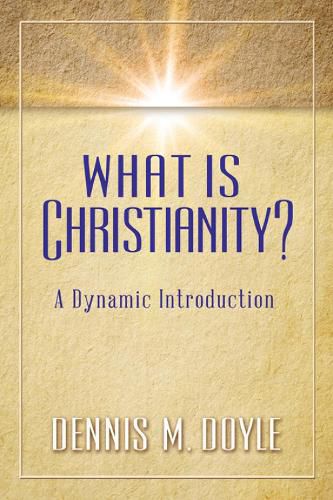Readings Newsletter
Become a Readings Member to make your shopping experience even easier.
Sign in or sign up for free!
You’re not far away from qualifying for FREE standard shipping within Australia
You’ve qualified for FREE standard shipping within Australia
The cart is loading…






This introduction to Christianity is designed for use as a basic text to help provide structure, background, and perspective for a first year college course in theology or religious studies. It strives to be ecumenical in approach, though not without some impact from the author’s being a Roman Catholic. The text is organized around the categories of scripture, tradition, sacraments, and Christian life. Christian theology, presented both affirmatively and critically, stands at the center of an interdisciplinary approach that draws upon philosophical, historical, and social scientific perspectives.
The author pays serious attention to the inclusion of various peoples and points of view. Religious pluralism, globalization, engagement with the modern world, reason and faith, iconoclasm and sacramentality, and spirituality and religion are among the contemporary themes that run throughout the text.
Each chapter provides questions for discussion, a glossary of key terms, and a list of recommended primary sources and background texts. As an introduction, the text chooses not to be fully comprehensive, but rather to be intelligently selective as it lays the groundwork for student participation in class. The text provides materials for fostering conversations that bridge the current gap between objective academic approaches and approaches that engage the students personally.
$9.00 standard shipping within Australia
FREE standard shipping within Australia for orders over $100.00
Express & International shipping calculated at checkout
This introduction to Christianity is designed for use as a basic text to help provide structure, background, and perspective for a first year college course in theology or religious studies. It strives to be ecumenical in approach, though not without some impact from the author’s being a Roman Catholic. The text is organized around the categories of scripture, tradition, sacraments, and Christian life. Christian theology, presented both affirmatively and critically, stands at the center of an interdisciplinary approach that draws upon philosophical, historical, and social scientific perspectives.
The author pays serious attention to the inclusion of various peoples and points of view. Religious pluralism, globalization, engagement with the modern world, reason and faith, iconoclasm and sacramentality, and spirituality and religion are among the contemporary themes that run throughout the text.
Each chapter provides questions for discussion, a glossary of key terms, and a list of recommended primary sources and background texts. As an introduction, the text chooses not to be fully comprehensive, but rather to be intelligently selective as it lays the groundwork for student participation in class. The text provides materials for fostering conversations that bridge the current gap between objective academic approaches and approaches that engage the students personally.